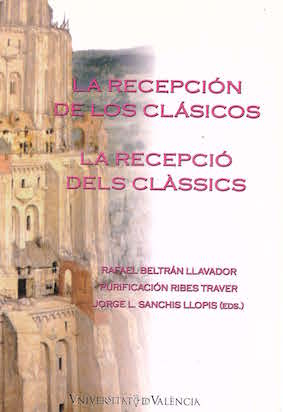Fedra en l’escriptura teatral de Salvador Espriu
DOI:
https://doi.org/10.7203/qf-elit.v10i0.5097Paraules clau:
Teatre, Fedra, recepció, català, versió Resum
Resum
Aquest article té com a objecte d'estudi dues obres teatrals de l'escriptor català Salvador Espriu basades en la tragèdia d'Hipòlit i Fedra: Fedra (1936), versió catalana d'un text de Llorenç Villalonga escrit el 1932 i de títol idèntic, i Una altra Fedra, si us plau (1977). L'estudi, en primer lloc, posa en relació cadascuna d'aquestes obres amb alguns dels antecendents il·lustres (Eurípides, Sèneca, Racine i Unamuno) i n'estudia les semblances i diferències. En segon lloc, compara i defineix la singularitat de cadascuna de les dues obres, atés que, tant des del punt de vista de la ficció com de la construcció teatral, aquestes responen a models i a discursos ben diferents.
 Descàrregues
Descàrregues
Descàrregues
Publicades
Com citar
-
Resum474
-
PDF (Español)244
Número
Secció
Llicència
 Este obra está bajo una licencia de Creative Commons Reconocimiento-NoComercial-SinObraDerivada 4.0 Internacional.
Este obra está bajo una licencia de Creative Commons Reconocimiento-NoComercial-SinObraDerivada 4.0 Internacional.
Tots els documents inclosos a OJS són d'accés lliure i propietat dels seus autors i/o institucions editores, i per tant, qualsevol acte de reproducció, comercialització, comunicació pública o transformació total o parcial necessita el consentiment exprés i escrit d'aquests.
________
Authors who publish with this journal agree to the following terms:
- Authors retain copyright and grant the journal right of first publication with the work simultaneously licensed under a Creative Commons Attribution License that allows others to share the work with an acknowledgement of the work's authorship and initial publication in this journal.
- Authors are able to enter into separate, additional contractual arrangements for the non-exclusive distribution of the journal's published version of the work (e.g., post it to an institutional repository or publish it in a book), with an acknowledgement of its initial publication in this journal.
- Authors are permitted and encouraged to post their work online (e.g., in institutional repositories or on their website) prior to and during the submission process, as it can lead to productive exchanges, as well as earlier and greater citation of published work (See The Effect of Open Access).



